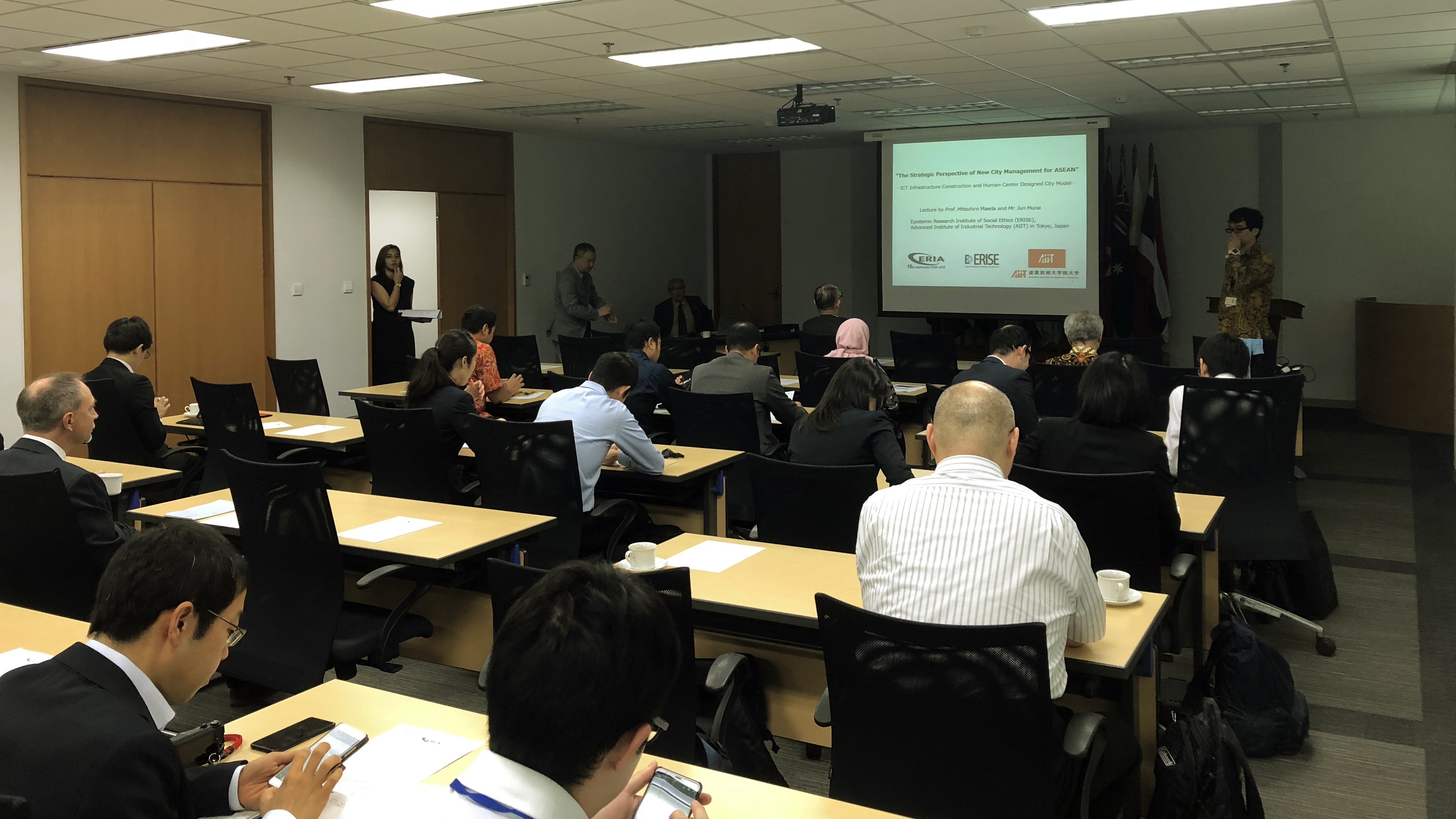ERIA Hosts ASEAN-focused Special Lecture on New City Management
Date:
17 December 2018Category:
NewsTopics:
Urban DevelopmentShare Article:
Print Article:
Jakarta, 4 December 2018: ERIA’s Economist, Dr Masahito Ambashi moderated ‘The Strategic Perspective of New City Management for ASEAN’ special lecture on Tuesday, 4 December 2018 at ERIA’s Annex Office in Jakarta. The lecture sought to introduce a ‘human-centred design’ (HCD) to city planning for ASEAN countries through the utilisation of information and communication technology (ICT).
Centre President of Epistemic Research Institute of Social Ethics (ERISE), Prof Mitsuhiro Maeda as well as Senior Researcher of ERISE, Dr Jun Murai presented their research findings on the future of ASEAN’s city management. The researchers focused on ASEAN due to the extensive regional development occurring among its Member-States. Further, many ASEAN countries are also experiencing rapid urbanisation in its capital cities thus bringing about urban problems. These issues can generate social issues for ASEAN countries, therefore, Dr Murai believes that ‘it is essential to establish an effective development strategy on city management.’
A proposed solution by Prof Maeda and Dr Murai is to counter urbanisation-related problems by turning to ICT. This is namely because the data analysis function associated with ICT usage helps to push for a more efficient infrastructure investment. With a majority of ASEAN countries targeting higher levels of development through infrastructure investment, the researchers argued that ICT incorporation into city planning can accelerate the process. Dr Trina Fizzanty from the Indonesian Institute of Sciences argued that ICT adoption in city management is particularly sensible for Indonesia considering the continuous uptick of smartphone and internet users nationwide.
Prof Maeda and Dr Murai’s research findings indicated that the construction of HCD city planning in ASEAN countries would enable a ‘leapfrog type development’; the term referring to a country’s ability to continue moving up the four infrastructure stages without having to undergo the standard stage-by-stage progression. Mostly, the strategic implementation of HCD city planning would support sustainability efforts and possess the hope of better responding to rapid development issues that developed countries such as Japan are currently experiencing.
Prof Maeda is also a Professor at the Advanced Institute of Industrial Technology (AIIT) with research interests in international relations, development finance, and financial geopolitics.
Dr Murai earned his PhD in Labour Management from Tokyo’s Nihon University while his research interests include city management, business administration, and work-style analysis.








